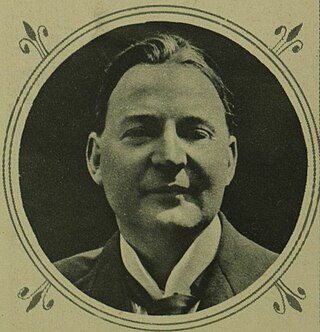
Charles Frederick Gurney Masterman PC MP was a British radical Liberal Party politician, intellectual and man of letters. He worked closely with such Liberal leaders as David Lloyd George and Winston Churchill in designing social welfare projects, including the National Insurance Act 1911. During the First World War, he played a central role in the main government propaganda agency.

Croydon was a constituency in the House of Commons of the UK Parliament from 1885 to 1918. As with most in its lifetime following the Redistribution of Seats Act 1885, it was a seat, that elected one Member of Parliament (MP) by the first past the post system of election.
Finsbury East was a parliamentary constituency centred on the Finsbury district of North London, England. It returned one Member of Parliament (MP) to the House of Commons of the Parliament of the United Kingdom, elected by the first past the post system.
West Ham North was a borough constituency in the County Borough of West Ham, in what was then Essex but is now Greater London. It returned one Member of Parliament (MP) to the House of Commons of the Parliament of the United Kingdom, elected by the first-past-the-post voting system.
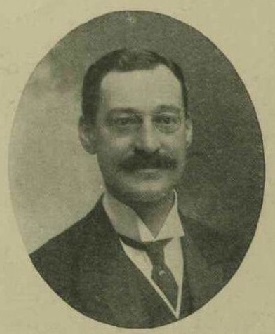
Sir Stuart Montagu Samuel, 1st Baronet was a British banker and Liberal politician who was Member of Parliament for Whitechapel.

Rt Hon. Sir Daniel Ford Goddard PC JP was a British civil engineer, businessman and Liberal Party politician who served as a Member of Parliament (MP) for Ipswich from 1895 to 1918. He was also Mayor of Ipswich from 1891 to 1892.
The 1911 Westbury by-election was a Parliamentary by-election held on 22 February 1911. The constituency returned one Member of Parliament (MP) to the House of Commons of the Parliament of the United Kingdom, elected by the first past the post voting system.
The 1911 Ross and Cromarty by-election was a Parliamentary by-election held on 14 June 1911. It returned one Member of Parliament (MP) to the House of Commons of the Parliament of the United Kingdom, elected by the first past the post voting system.
The 1911 Glasgow Tradeston by-election was a Parliamentary by-election held on 6 July 1911. It returned one Member of Parliament (MP) to the House of Commons of the Parliament of the United Kingdom, elected by the first past the post voting system.
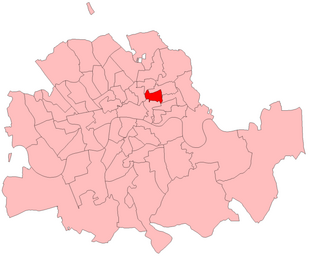
The Bethnal Green South West by-election was a Parliamentary by-election held on 29 July 1911. It returned one Member of Parliament (MP) to the House of Commons of the Parliament of the United Kingdom, elected by the first past the post voting system.
The 1911 South Somerset by-election was a Parliamentary by-election held on 21 November 1911. The constituency returned one Member of Parliament (MP) to the House of Commons of the United Kingdom, elected by the first past the post voting system.
The 1911 Hitchin by-election was a Parliamentary by-election held on 23 November 1911. The constituency returned one Member of Parliament (MP) to the House of Commons of the United Kingdom, elected by the first past the post voting system.
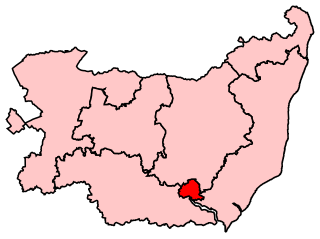
The 1914 Ipswich by-election was a Parliamentary by-election held on 23 May 1914. The constituency returned two Members of Parliament (MP) to the House of Commons of the United Kingdom, elected by the first past the post voting system.

The 1914 Bethnal Green South West by-election was a Parliamentary by-election held on 19 February 1914. The constituency returned one Member of Parliament (MP) to the House of Commons of the United Kingdom, elected by the first past the post voting system.
The 1912 Crewe by-election was a Parliamentary by-election held on 26 July 1912. The constituency returned one Member of Parliament (MP) to the House of Commons of the United Kingdom, elected by the first past the post voting system.
The 1904 Norwich by-election was a Parliamentary by-election held on 15 January 1904. The constituency returned two Members of Parliament (MP) to the House of Commons of the United Kingdom, elected by the first past the post voting system.
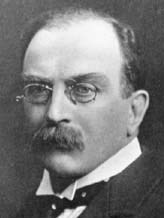
The 1911 Cambridge University by-election was a Parliamentary by-election held on 11-16 February 1911. The constituency returned two Members of Parliament to the House of Commons of the United Kingdom, elected by the first past the post voting system.
The 1912 Ilkeston by-election was a Parliamentary by-election held on 1 July 1912. The constituency returned one Member of Parliament (MP) to the House of Commons of the United Kingdom, elected by the first past the post voting system.
The Basingstoke by-election was a Parliamentary by-election held on 12 March 1906. The constituency returned one Member of Parliament (MP) to the House of Commons of the United Kingdom, elected by the first past the post voting system.
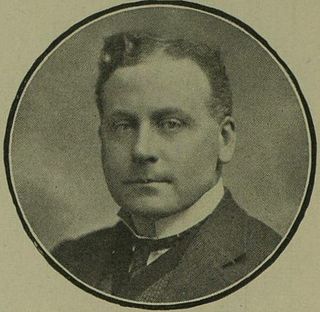
Sir Ernest Wild, KC was a barrister, Judge and Conservative Party politician who served first on the London County Council, and then as a Member of Parliament.












